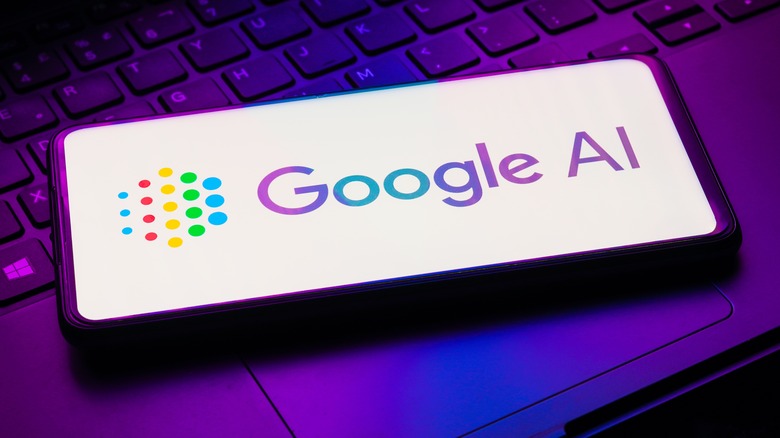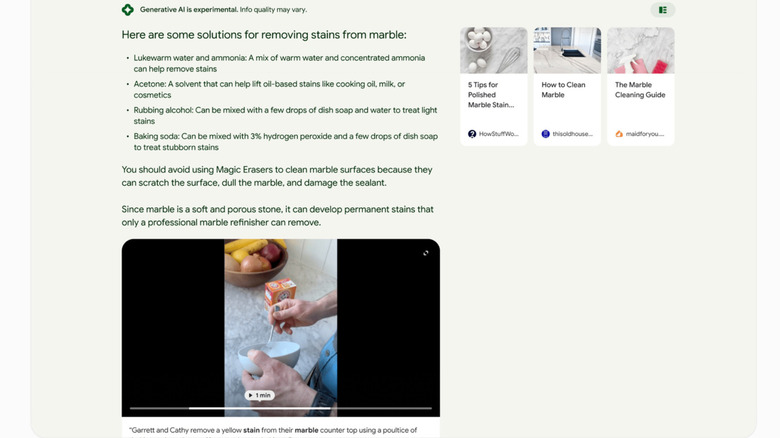Google Soups Up Generative AI Search With Images And Videos
The race among tech companies to create and successfully implement the most advanced version of AI possible heats up more and more every day. Last month, Microsoft announced that its Bing AI search system powered by OpenAI's GPT-4 can now read and interpret user-uploaded images. Google is another tech giant working on its own AI-powered search system, but Bing's advancements showcased yet again how far behind Google was with its search tool.
Google's Generative AI, found in its ever-evolving Search labs, allows users to input a specific question into a search bar and have AI interpret the information, provide relevant knowledge, and respond conversationally. This, in theory, lets users input complex questions and searches and receive accurate results within seconds, and it recently got a big update.
Now, Google is leveling up its Generative AI with images and videos. However, it is not implementing image recognition like Bing did last month. Although it may not be as impressive as what OpenAI has already pulled off in Microsoft's search engine, it does show that Google isn't willing to fall behind.
Image and videos now show up in AI-powered searches
On its official blog, Google announced that images and videos will now appear when searching the web via the Generative AI search bar. The company felt this feature was needed because "sometimes, it's more powerful to understand something by seeing it." As an example of how this feature works, Google explained that searching for "tiniest birds of prey" will show images of what the birds look like in conjunction with relevant information.
Google also explained that videos will begin to be featured next week on searches the AI deems appropriate. The examples it gave were "demonstration of a yoga pose, or how to get stains out of marble." Accompanying the example was a GIF of how the new search function would display videos alongside the search.
Additionally, two other new things were added to the Generative AI search feature. The first improvement was that the company allegedly reduced the time it takes for the AI to produce results by half. And Google noted that it is working to get this time down even further. The third improvement was that it added publish dates to each link. This helps users decipher which information is up to date.
This entire update showcases that Google is still serious about AI. Although, many have already deciphered that after the company recently and unexpectedly brought back a talented Google co-founder to help with AI research.

